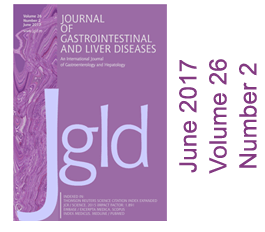 A patient appears to have had a change of heart about being featured in a case report.
A patient appears to have had a change of heart about being featured in a case report.
The patient cannot be identified in the paper published in Journal of Gastrointestinal and Liver Diseases. However, according to the retraction notice, she threatened to sue if the authors did not withdraw it. After receiving the threat, the paper’s corresponding author, Mariano Sica, told us that the authors immediately asked the journal to retract the paper.
We’ve written about similar cases where patients do not provide informed consent or withdraw it, but in this case we haven’t seen the threat ourselves.
We asked Sica if we could see the legal threat, and he said he couldn’t share it, explaining:
I do not have a paper version of the legal threat because at the time the patient’s daughter informed us of the intention to sue we immediately requested the retirement of the work.
Monica Acalovschi, the editor-in-chief of the Journal of Gastrointestinal and Liver Diseases, also could not confirm the patient’s threat because the authors did not send the journal the correspondence and the patient did not contact the journal.
Here’s the notice for “One-shot Balloon Dilation of Esophageal Stricture due to Unusual Lichen Planus Localization:”
The authors of the case report One-shot Balloon Dilation of Esophageal Stricture due to Unusual Lichen Planus Localization published as an Image of the Issue in December 2016 in the Journal of Gastrointestinal and Liver Diseases (volume 25, number 4) have communicated to us they wish to retract this article from the journal. The patient and especially her sons, after having been shown the printed article, asked the authors to withdraw the manuscript, threatening to commence legal proceedings. Although no clear identification of the patient is possible from the publication, the first author, Mariano Sica, respecting the patient’s decision and having obtained the consent of all authors, has officially requested the removal of this “Image of the issue” from the electronic accessibility from both the PubMed and JGLD sites. He apologises for having generated this undesirable situation, but he cannot act in any other way, due to the patient’s new decision.
Sica, based at Nuovo Ospedale Civile Sant’ Agostino-Estense in Italy, told us that the authors did obtain consent from the patient but the patient’s daughter, who is a lawyer, believed what the authors did was unethical.
Sica added:
So in order not to run into unnecessary discussions and possible repercussions we decided to accept the request of the daughter.
According to Acalovschi:
The strong reaction against the publication came from the patient’s sons, after the article was shown to them. This is what the authors communicated us.
We’ve written about other cases when patients withdraw consent or researchers publish without it . In one case, researchers were unable to reach a patient to ask for permission, and when the patient found the paper, she asked the authors to retract it. In another case, parents withdrew consent for researchers to use their child’s photo in a paper when they realized the paper was freely accessible to anyone instead of behind a paywall.
Like Retraction Watch? Consider making a tax-deductible contribution to support our growth. You can also follow us on Twitter, like us on Facebook, add us to your RSS reader, sign up on our homepage for an email every time there’s a new post, or subscribe to our new daily digest. Click here to review our Comments Policy. For a sneak peek at what we’re working on, click here.
This is ridiculous. If you are a patient benefiting from medical advances your family should not be able to sue to withdraw a case report that might help physicians taking care of other patients, especially when the patient cannot be identified from the case report. I highly doubt that people who know the patient would be able to identify her as someone who needed dilation of an esophageal stricture due to unusual lichen planus localization.
I agree, in particular as the patient did consent to the publication of the report as published. If the consent is in writing by a legally competent person, I doubt that the sons’ claim has any legal standing and hence should be ignored. There may indeed be a duty to make the information generally available. One wonders whether the inspiration for the claim was monetary.
Interesting situation – we know that the consent for treatment can be withdrawn at any time, but what about the surgery – if it’s consented it is done deal, which cannot be undone. Should the consented case report publications follow the suit?
Off-topic my partner loves to tell the story of trying to get out of surgery as the anesthesia was being administered…he was told, if you can count to 10 Mr. Labrat….
He woke up in recovery. He (and I ) was glad to have the surgery since he would have died otherwise.
“the patient’s daughter, who is a lawyer, believed what the authors did was unethical.”
Since there is nothing about the authors being sued for malpractice, it doesn’t seem like the treatment itself was unethical, so, if a standard consent form was properly used, I’m struggling to think what would actually be unethical.